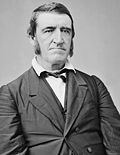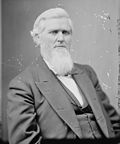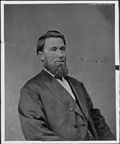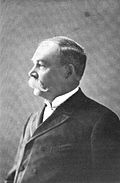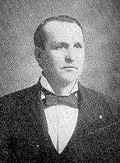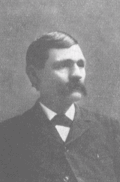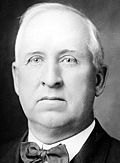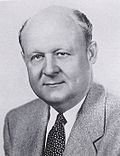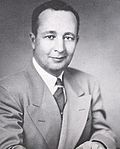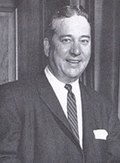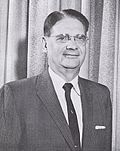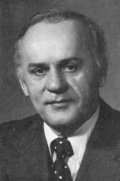| Governor of Nebraska | |
|---|---|
 Seal of Nebraska | |
| Style | The Honorable |
| Residence | Nebraska Governor's Mansion |
| Term length | 4 years, renewable once consecutively |
| Inaugural holder | David Butler |
| Formation | Constitution of Nebraska |
| Succession | Line of succession |
| Deputy | Lieutenant Governor of Nebraska |
| Salary | $105,000 USD (2022) [1] |
| Website | governor |
The governor of Nebraska is the head of government of the U.S. state of Nebraska as provided by the fourth article of the Constitution of Nebraska. The officeholder is elected to a four-year term, with elections held two years after presidential elections. The governor may be elected any number of times, but not more than twice in a row. The current officeholder is Jim Pillen, a Republican, who was sworn in on January 5, 2023.
Contents
- List of governors
- Nebraska Territory
- State of Nebraska
- Timeline
- See also
- Notes
- References
- External links
Governors of Nebraska must be at least 30 years old and have been citizens and residents of the state for five years before being elected. Before 1966, the governor was elected to a two-year term. In 1962, a constitutional amendment extended the gubernatorial term to four years, effective with the 1966 election. In 1966, another amendment imposed a term limit of two consecutive terms. The lieutenant governor is subject to the same limitations and runs on a combined ticket with the governor. Charles W. Bryan is the only Governor of Nebraska to serve non-consecutive terms. Dave Heineman holds the record as Nebraska's longest-serving governor with 10 years.
The governor's term, along with all other elected statewide officers, begins on the first Thursday after the first Tuesday in the month of January after an election. [2] If the governor becomes incapacitated or is out of the state, the lieutenant governor acts as governor; if there is a vacancy or permanent incapacitation, the lieutenant governor becomes governor and serves the balance of the term. However, if both offices become vacant, the next person in the line of succession is the Speaker of the Nebraska Legislature, who is then followed by the chairs of various committees in the legislature.



